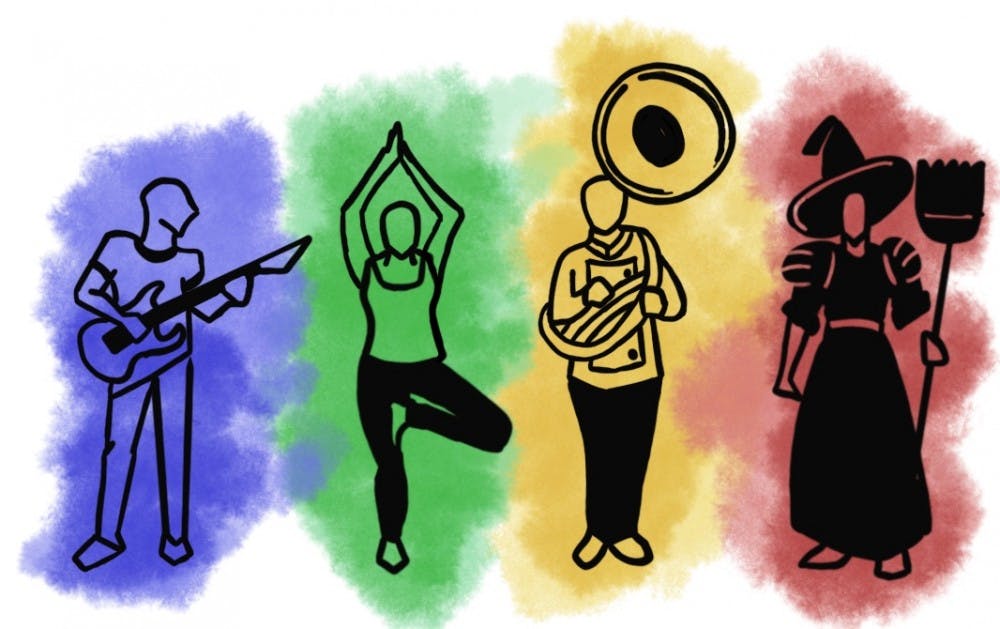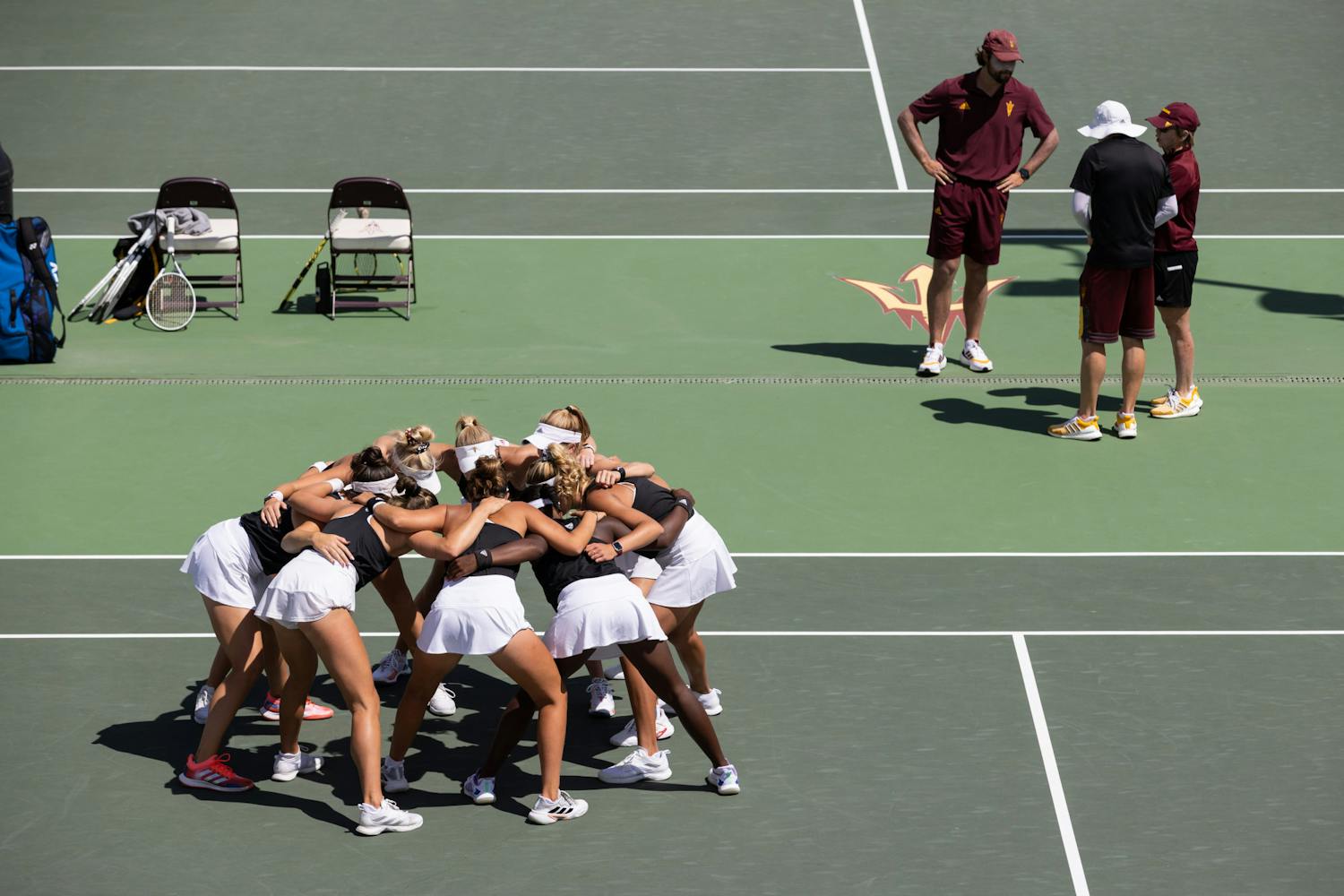For many students, academics is everything. Their major map, however, does not always encompass all the opportunities available to them.
As students prepare their schedules for the Fall 2018 semester, they should aim to include non-major classes, to diversify their academic career and learn skills that don't directly pertain to their major or future career field.
But beyond learning skills and rounding out your educational experience, these elective classes are a good way to relax and take a class simply because you enjoy it. And in a culture where we take classes to graduate and get ready for the working world, a fun extracurricular class is a breath of fresh air.
Joseph Felice, a faculty associate at ASU who directs the Rock Band class, said it is important for students to take advantage of the unique opportunities presented to them in college.
“I think it enriches their lives,” Felice said. “Sometimes when you’re focused purely on your discipline, you kind of get tunnel vision – you don’t really get a broad education. When you look back at public education, there’s not a lot of opportunities for these kinds of classes. I can’t remember ever having a rock guitar class offered at any institution that I went to.”
Rock Band is a performance-based class which teaches students how to collaborate in groups and work towards performing in front of an audience.
“When people leave the University, typically you don’t work alone … It’s kind of building on team relationships,” Felice said. “When you’re working with music, there’s a lot of sensitivity going on, and people have their own ideas of how things should be done, but you have to learn things like compromise and how to work with other people’s egos. You’re learning a lot of things that aren’t taught traditionally.”
There are a multitude of other non-major music classes students can take, as well as non-major art classes.
There are options for elective classes for students with any amount of availability in their schedules, whether they only have time for a one-credit class or they have room for three or more credits.
If credit limit is a concern, ASU students can consider one or two-credit physical education classes such as archery or amateur boxing, or dance classes such as yoga, meditation or an introductory Latin/Salsa course.
Students at Barrett, the Honors College, can also earn credit with interesting upper-level classes such as Topic: Castles, Plagues, and Zombies or Topic: The Quest for Enhanced Consciousness.
Adding a class to an already heavy course load may seem counterintuitive, but despite the added commitment, extracurricular courses on topics students can get excited about may actually be a way to alleviate stress during the week.
Those who want to take courses that are universally applicable to all majors should consider taking a philosophy or ethics course.
David McElhoes, a philosophy instructor at ASU, said he sees a wide variety of students in his classes.
“I get all kinds of students from every school and faculty (department) – lots of political science majors, sociologists, lots of engineers, physicists,” McElhoes said. "Every faculty is well represented in my large lecture classes when it comes to ethics.”
Classes such as ethics or history can lie outside students’ majors, but they are still applicable to every field of study and can be an enriching addition to a student’s course load.
“When they go on and apply the material they learn in my course to other fields and other classes, they’re not just applying their knowledge of ethics,” McElhoes said. “They’re applying the philosophical methods of exposing, evaluating and interrogating an argument. Studying ethics isn’t just talking about what people think are ethical … you learn to expose an argument, and that has applications way beyond ethics.”
Taking elective classes can be a way for students to diversify their college experience and pursue recreational topics they would not have considered otherwise.
“Surprisingly, I don’t get as many people in my classes from music as I do from physics, chemistry and engineering," Felice said. "More than half of the people who take my class are people from those disciplines who are so wiped out mentally that this is just a way to decompress. It’s not only about working like this – it’s a chance to have fun at college in a way that’s enriching.”
Reach the columnist at kalbal@asu.edu or follow @KarishmaAlbal on Twitter.
Editor’s note: The opinions presented in this column are the author’s and do not imply any endorsement from The State Press or its editors.
Want to join the conversation? Send an email to opiniondesk.statepress@gmail.com. Keep letters under 500 words and be sure to include your university affiliation. Anonymity will not be granted.
Like The State Press on Facebook and follow @statepress on Twitter.




